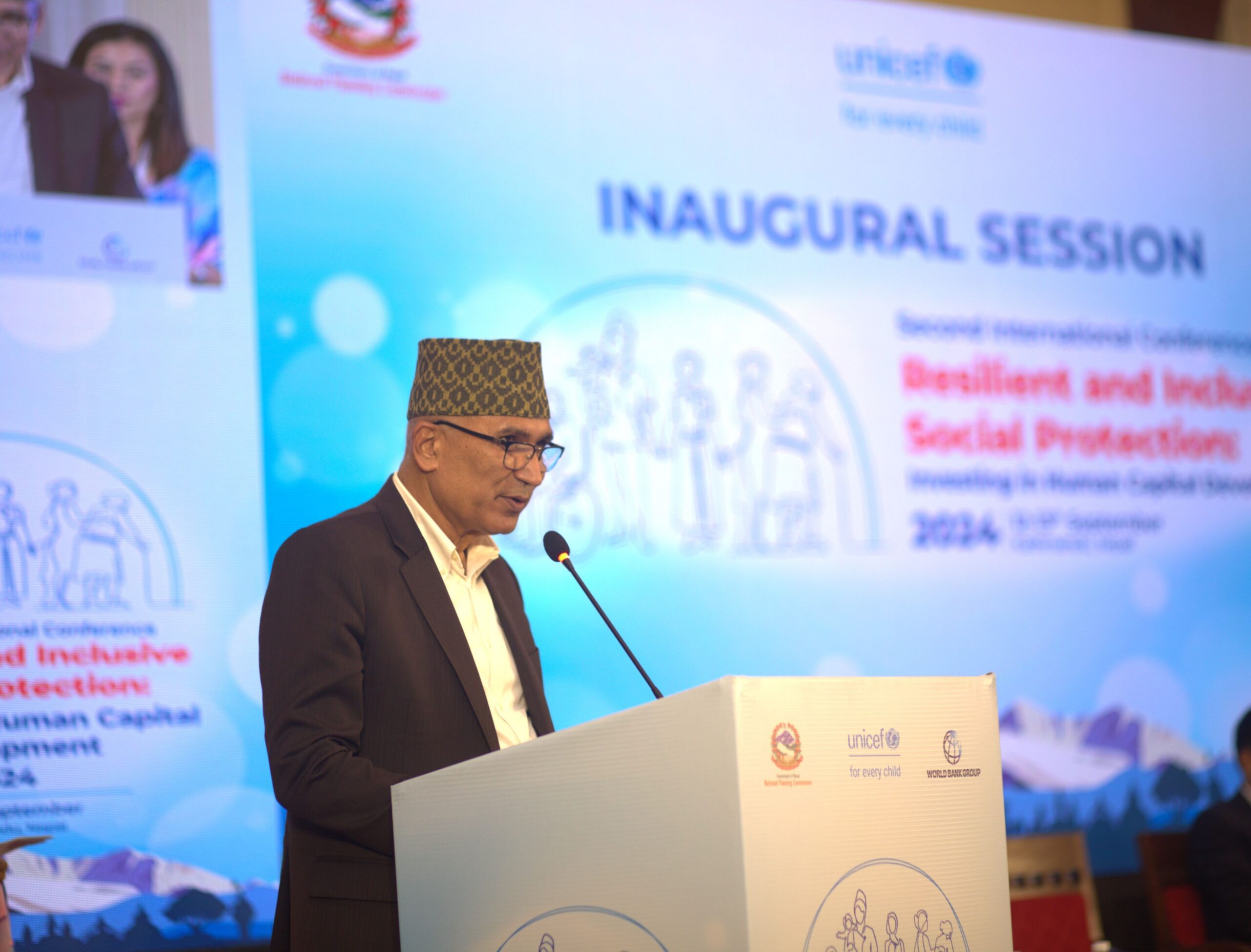KATHMANDU, 12 September 2024 — The Government of Nepal, in collaboration with UNICEF and the World Bank, has commenced its second international conference on social protection in Kathmandu today. The event, which runs for two days, is centered on the theme “Resilient and Inclusive Social Protection: Investing in Human Capital Development.”
The conference was inaugurated by Deputy Prime Minister and Finance Minister, Mr. Bishnu Paudel. In his opening remarks, Mr. Paudel underscored the importance of this conference at a pivotal time for Nepal, as the country focuses on investing in its human capital. “We are committed to building a more inclusive social protection system that serves the needs of all, especially our children and future generations,” he stated.
Nepal is experiencing significant economic, social, and demographic shifts, with around 20 percent of its population still living below the poverty line and persistent inequalities. Although Nepal’s Constitution guarantees social security for vulnerable groups, investment has largely been directed towards the elderly, with insufficient focus on children and other at-risk populations.
Professor Dr. Shivaraj Adhikari, Vice Chairperson of the National Planning Commission, highlighted the Government’s commitment through the Sixteenth Plan to prioritize human capital development. He emphasized the necessity of increasing investments in children, noting that human development is crucial for the country’s advancement.
Despite rising investments in social protection, the impact on poverty reduction, human capital development, and resilience has been limited. Mr. Sanjay Wijesekera, Regional Director for UNICEF South Asia, highlighted the potential of early investments, such as universal child grants, to break cycles of intergenerational poverty. “Through this conference, we are reaffirming our commitment to the children and young people of Nepal,” Wijesekera said, “and challenging ourselves to create a world where every child and young person has the opportunity to thrive.”
This conference builds on the progress made since the 2019 International Conference on Social Protection, which addressed policy issues and advocated for expanded child grants, an integrated registry, and enhanced investment in both formal and informal sectors. The current conference serves as a platform to review progress, share knowledge, and collaborate towards achieving SDG Target 1.3, which aims to implement nationally appropriate social protection systems for all.
Ms. Preeti Arora, World Bank Operations Manager for Maldives, Nepal, and Sri Lanka, emphasized the critical role of adaptive social protection systems in the face of global challenges. “Effective social protection can buffer vulnerable populations from crises and enable investments in education, healthcare, and other essential services,” she said.
The conference features participation from senior representatives of the Government of Nepal, UNICEF, the World Bank, as well as regional and global social protection experts. Dr. Michael Samson, Director of the Economic Policy Research Institute, delivered the keynote address on the global perspective of social protection investments for human capital, inclusion, and resilience.



